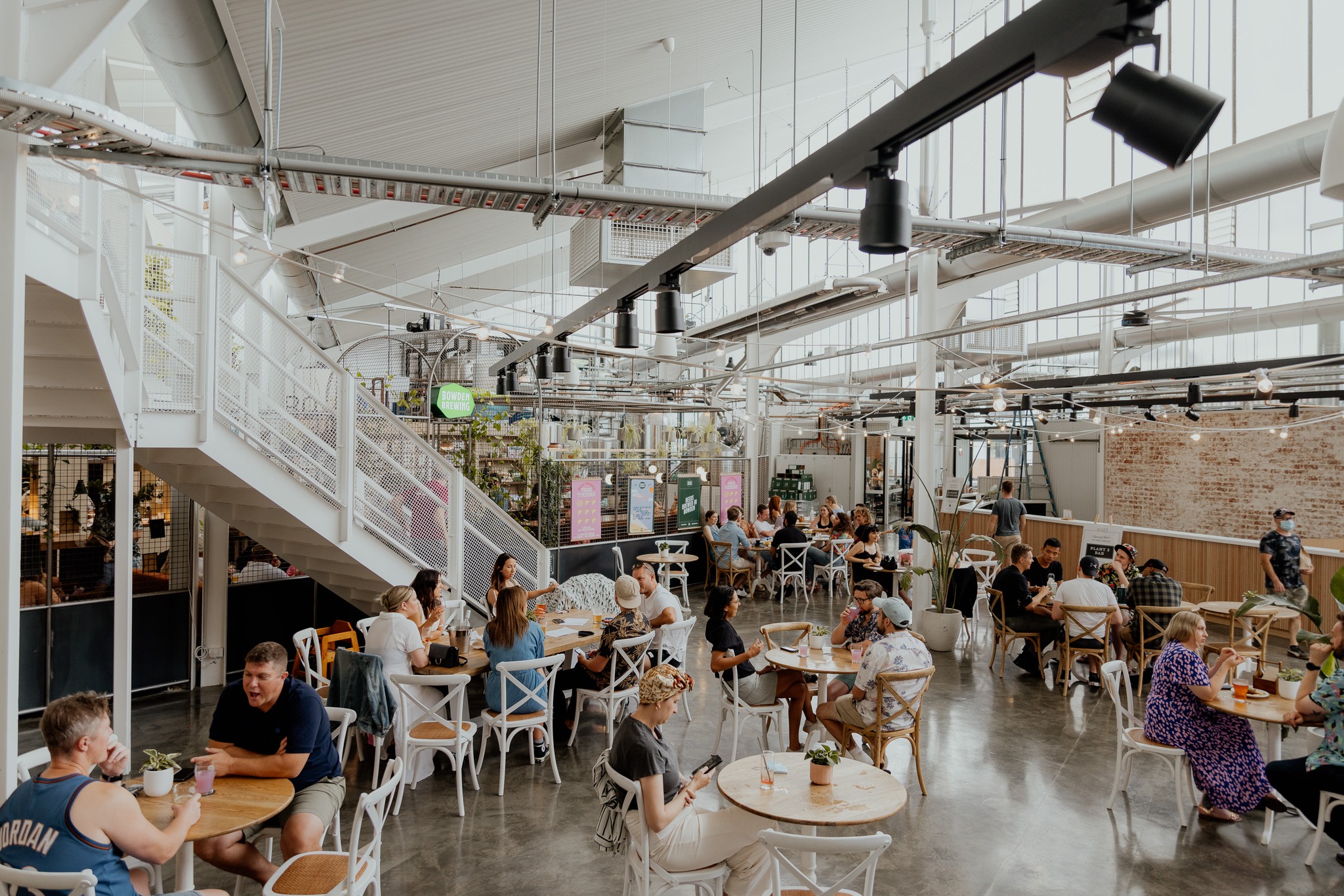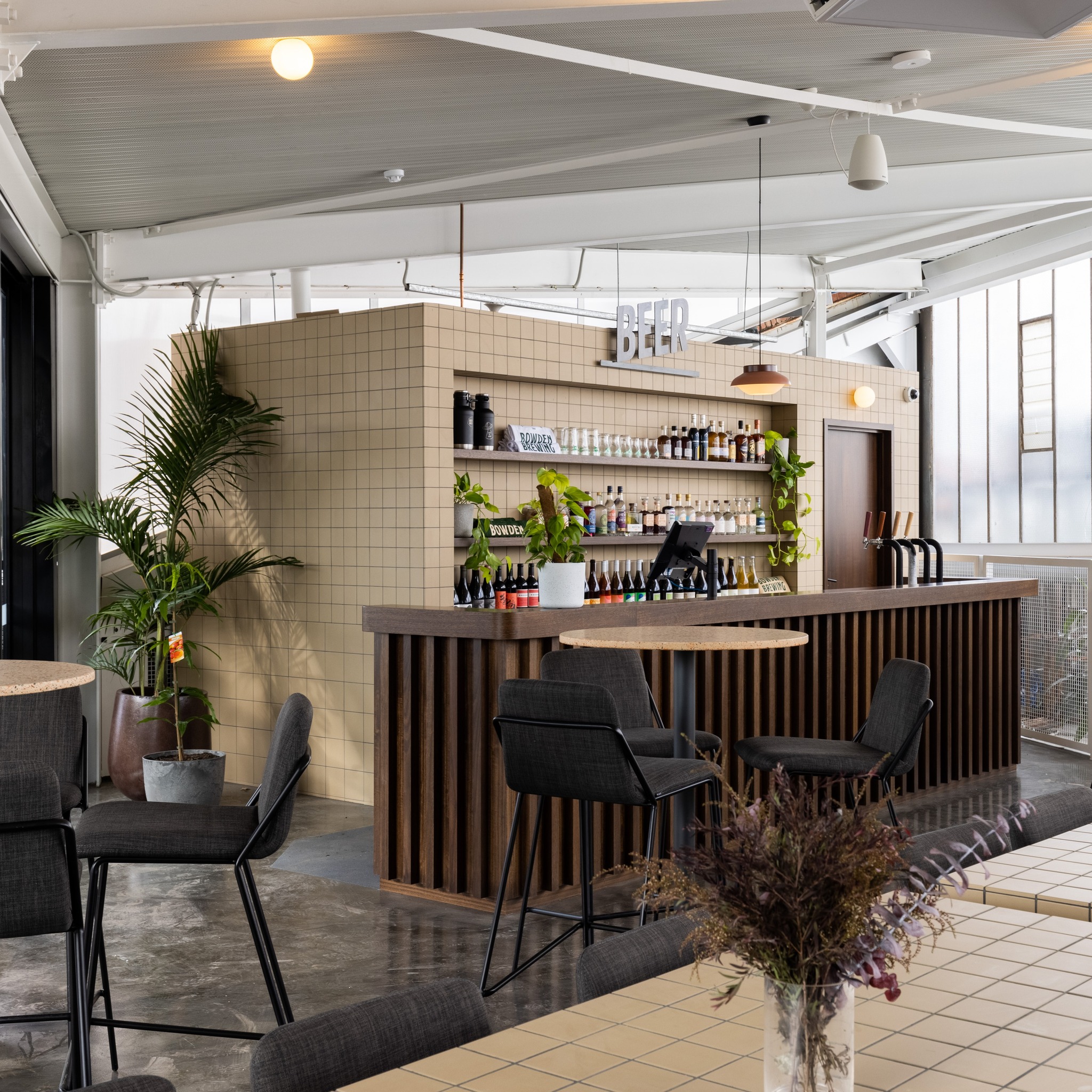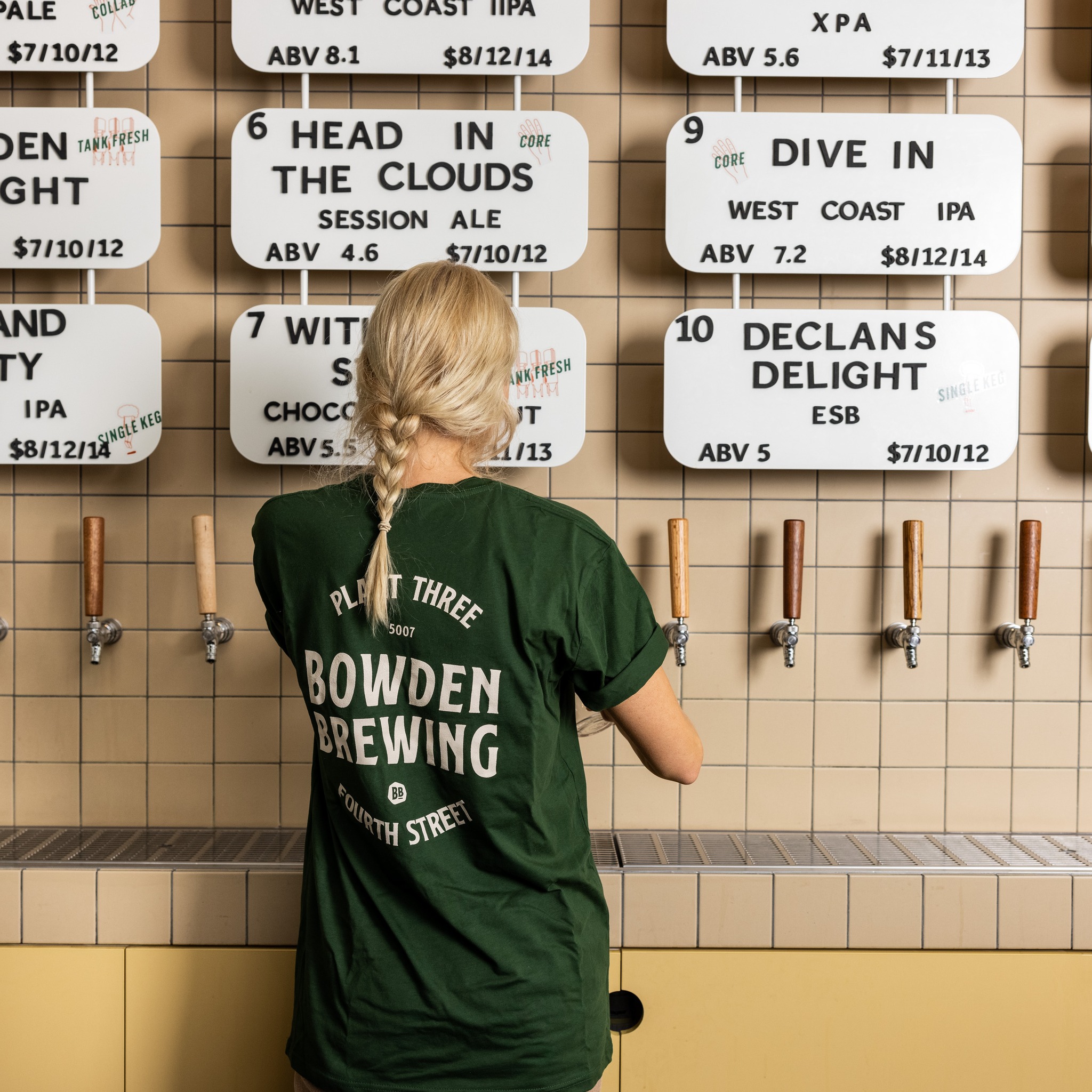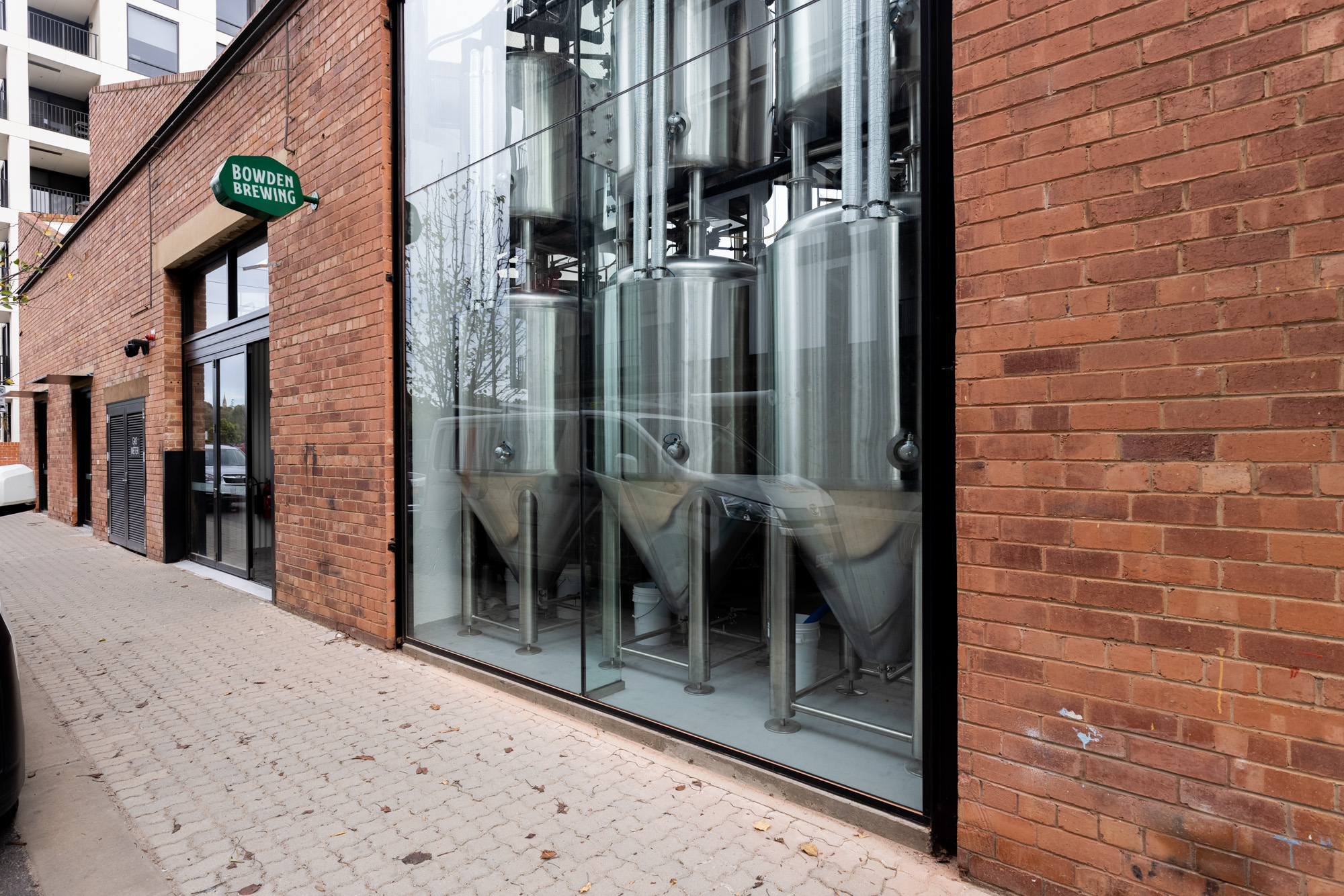
Lessons Learned: Seasonal prep & production scaling
Lessons Learned is a column where Brews News speaks to start-up breweries one year after first opening to understand the challenges of opening a new brewery, and share key learnings for any breweries-in-planning.

Seasonal preparation and production scaling were some of the lessons learned by Bowden Brewing in its first year of business.
The brewery opened in July last year and was co-founded by Alex Marschall, Jake Phoenix, Oliver Brown, Joshua Talbot and Matthew Orman through working at the New-Orleans inspired bar, NOLA.
In a similar experience to Mount Gambier’s Woolstore Brewery, the inner-city brewery struggled with COVID-19 restrictions in South Australia. However as co-founder Alex Marschall explained, the challenges were expected.
“In the middle of COVID, we’ve had a number of lockdowns, reopenings and restricted capacity so the venue and commercial kitchen had a number of challenges,” he said.
“But overall, I think it went fairly well and was what we were expecting getting into it, which is pretty good.”
The brewery itself is placed in Plant 3 Bowden, which is a site that features various businesses along with Bowden Brewing. As a result, the development application was lodged with the State Commission Assessment Panel as well as local council.
Marschall reflected that preparation was a hard lesson learned for the business, not just with the development application process.
“When we were opening, the State government [was a challenge] so we were still figuring that out. There was a little bit less planning, we maybe we could have done that,” he said.
“In terms of just planning, going from beer production into selling in venue, for us, it was a challenge trying to predict the market kind of flow and trying to plan ahead for the seasons a little bit as well.”
During the colder seasons, Adelaide embraces a dark beer culture with various events taking place to showcase breweries’ dark beers. Utilising this for your business is essential if you’re in a similar area, but preparation needs to be prioritised, Marschall advised.
“You have to be looking at least six weeks ahead in planning certain styles to fill your board out ready to go. If you hit winter, and you don’t have any dark beers on board, you’ve sort of missed the boat already there as well,” he said.
“A little bit of that planning, trying to try to predict what will sell and how much will sell, until you strike a bit of a balance.”
This approach then feeds into other aspects of the business, especially when it comes to scaling production.
“We scaled our equipment to be able to work up towards our capacity production-wise,” Marschall said.
“When we originally opened, we had double size fermenters originally just doing single batch to half fill the fermenters to ease into the volume.
“Whereas now we’re pretty much at full capacity, we’re double brewing everything we do and filling the fermenters right to the brim.
“Obviously, with the addition of canning machines, we end up canning and kegging half the batch. So it’s about finding that balance of the packaging.”
Marschall said the brewery now looks towards prioritising maintenance and advised others to do the same.
“Being a year on now, we really need to start focusing a bit more on equipment maintenance as well,” he explained.
“Not everything but a lot of pieces of equipment have 12 monthly maintenance inspections that need to be done on it as well.
“So with that in place, brand new equipment, typically you’re right for a little while, but now, you want to start looking after it so that it lasts as long as it can and doesn’t die out in another six months’ time.”
Local collaboration
For a brewery based in an inner-city suburb, Bowden Brewing has experienced a vast range of customers, which has contributed to a local following.
“The area being a fairly apartment-heavy build means that we see a lot of people coming here with their friends who are visiting from interstate, and using this entertainment space, which is good and what we intended from the start,” Marschall explained.
“With being in the new development as well, there was a lot of excitement for us opening, and that’s sort of continuing.
“So we’ve got a lot of loyal locals that we see weekly coming back, always wanting to come and try the new brews that we released, which is good.”
Marschall advised that other businesses should utilise the collaboration of working with other local businesses.
“So we’re working with the other businesses who are now living up in the space as well. We had a coffee roaster open up right next door to us, as well as a dessert bar opening shortly,” he said.
“Try and work with all the other local businesses around you to activate the whole space and have separate offerings, but in a related way between all the businesses.”
With the addition of canning, the brewery intends to grow its wholesale by focusing on distributing to independent bottle shops, while continuing working with local businesses.
“We’ve been doing a fair bit more canning than we had ever originally planned to, which turned out to be good,” Marschall explained.
“Everything can still get that view as well as going to a few independently owned bottle shops and trying to get in, not far and wide, but in the Adelaide community a little bit more.
“So still primarily selling what we can in venue but a little bit more as wholesale. Get a bit more statewide exposure, I suppose.”






